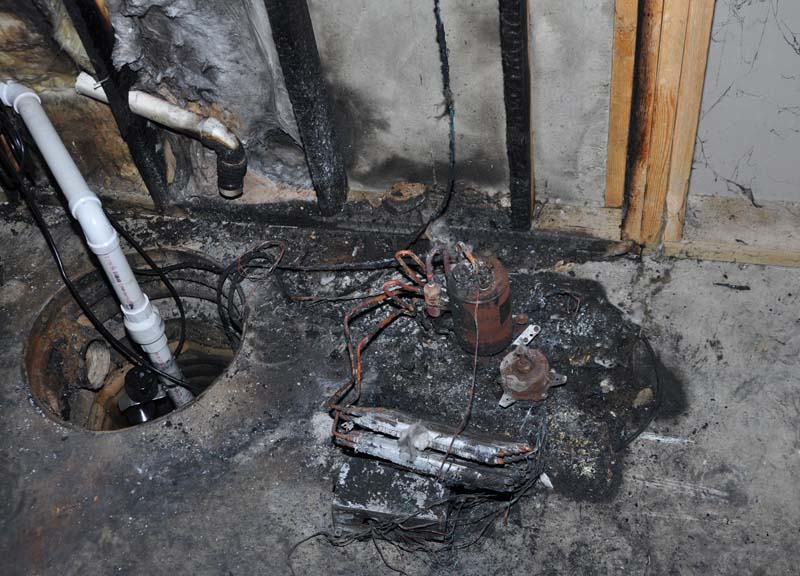More than 2 million dehumidifiers have been recalled throughout the United States and Canada after reports have surfaced of fires and property damage caused by certain models produced by Gree Electric Appliances.
According to the United States Consumer Product Safety Commission, 12 brands of humidifiers, all manufactured by Gree Electric Appliances of China, were voluntarily recalled because of their potential to overheat, smoke, and/or catch fire. Thus far, the CPSC has estimated there has been about $2M in property damage caused by these dehumidifiers.
The models involved in the recall include 20-, 25-, 30-, 40-, 50-, 65-, and 70-pint dehumidifiers with the brand names Danby, De’Longhi, Fedders, Fellini, Frigidaire, Gree, Kenmore, Norpole, Premiere, Seabreeze, Soleus Air, and SuperClima. An estimated total of 2.2 million dehumidifiers were sold to consumers in the United States, and approximately 52,500 were sold in Canada. Consumers who own any of these models have been advised by Gree and the CPSC to immediately turn off and unplug the appliance and contact Gree for a full refund.
 Product manufacturers, designers, distributors, wholesalers, and sellers are liable for making sure that their consumer products are not only manufactured correctly, but are safe for consumption or use. The scope of those injured or killed by consumer products is overwhelming; and the CPSC estimates that tens of thousands of people fall victim to various types of faulty consumer products each year-from children’s toys to automobiles to household appliances. When merchants fail to fulfill this obligation, and someone is seriously injured or is killed, the injured victims and their family members are entitled to file a claim against responsible parties.
Product manufacturers, designers, distributors, wholesalers, and sellers are liable for making sure that their consumer products are not only manufactured correctly, but are safe for consumption or use. The scope of those injured or killed by consumer products is overwhelming; and the CPSC estimates that tens of thousands of people fall victim to various types of faulty consumer products each year-from children’s toys to automobiles to household appliances. When merchants fail to fulfill this obligation, and someone is seriously injured or is killed, the injured victims and their family members are entitled to file a claim against responsible parties.
There are three kinds of product defects covered under products liability law including flawed product design, manufacturing process error, and lastly, marketing defects. A design defect is a defect that is inherent to the product itself, which makes the product unsafe for its intended use. Though the product may have been produced and marketed the way it was intended, it may have been designed improperly. In most instances with these types of cases, the manufacturer could have potentially used a safer design to avoid any foreseeable risks associated with the product. In the instance with Gree Electric, Gree ultimately bares the responsibility for manufacturing and selling a flawed product. Their product is a fire hazard and is prone to cause serious property damage, personal injury, or death.
Continue reading
 Boston Injury Lawyer Blog
Boston Injury Lawyer Blog


 Columbia Gas utility workers had been surveying gas lines on November 23, 2012, after responding to reports of a strong gas odor near Score’s strip club, located at 453 Worthington Street. A worker using a probe to search for the source of the odor accidentally ruptured a gas line, triggering a massive explosion that leveled the strip club, shattered building windows, and seriously damaged three dozen nearby buildings, including 100 residential units. While there were no fatalities, more than 20 people suffered injuries, and dozens of residents were displaced as a result of the blast.
Columbia Gas utility workers had been surveying gas lines on November 23, 2012, after responding to reports of a strong gas odor near Score’s strip club, located at 453 Worthington Street. A worker using a probe to search for the source of the odor accidentally ruptured a gas line, triggering a massive explosion that leveled the strip club, shattered building windows, and seriously damaged three dozen nearby buildings, including 100 residential units. While there were no fatalities, more than 20 people suffered injuries, and dozens of residents were displaced as a result of the blast.  Product manufacturers, designers, distributors, wholesalers, and sellers are liable for making sure that their consumer products are not only manufactured correctly, but are safe for consumption or use. The scope of those injured or killed by consumer products is overwhelming; and the CPSC estimates that tens of thousands of people fall victim to various types of faulty consumer products each year-from children’s toys to automobiles to household appliances. When merchants fail to fulfill this obligation, and someone is seriously injured or is killed, the injured victims and their family members are entitled to file a claim against responsible parties.
Product manufacturers, designers, distributors, wholesalers, and sellers are liable for making sure that their consumer products are not only manufactured correctly, but are safe for consumption or use. The scope of those injured or killed by consumer products is overwhelming; and the CPSC estimates that tens of thousands of people fall victim to various types of faulty consumer products each year-from children’s toys to automobiles to household appliances. When merchants fail to fulfill this obligation, and someone is seriously injured or is killed, the injured victims and their family members are entitled to file a claim against responsible parties. Fan safety has been a very important topic in professional sports, as fan injuries have become more and more prevalent at sports stadiums. Also this weekend, some rowdy fans from the University of Maryland were injured after a section of bleachers collapsed at Ludwig Field during a soccer match against Duke. Last month a 30-year old Atlanta Braves fan died during a baseball game at Turner Field when he fell nearly 70 feet from the upper viewing deck.
Fan safety has been a very important topic in professional sports, as fan injuries have become more and more prevalent at sports stadiums. Also this weekend, some rowdy fans from the University of Maryland were injured after a section of bleachers collapsed at Ludwig Field during a soccer match against Duke. Last month a 30-year old Atlanta Braves fan died during a baseball game at Turner Field when he fell nearly 70 feet from the upper viewing deck. One of the three teens had apparently fallen off the tube after it passed over the wake, and as the driver went to pick the young man up, he drove toward the tube with two of the teens still on it. The boat struck one of the teens, and continued over him.
One of the three teens had apparently fallen off the tube after it passed over the wake, and as the driver went to pick the young man up, he drove toward the tube with two of the teens still on it. The boat struck one of the teens, and continued over him. Watercraft and motorboat incidents happen all the time for a variety of reasons. While human error is usually to blame, people do not often think about the mechanical dangers of watercraft and boats, and often these mechanical failures blindside victims. What may start out as a fun day out on the water, can end in tragedy. When a jet ski accident does occur, the machine itself must be thoroughly inspected. Investigators often cite mechanical errors, design flaws, or other safety malfunctions as the causes of many of these types of crashes. Some of these types of safety issues may include complications with the propeller, gross overpowering or issues with the throttle, as well as issues with the fuel line.
Watercraft and motorboat incidents happen all the time for a variety of reasons. While human error is usually to blame, people do not often think about the mechanical dangers of watercraft and boats, and often these mechanical failures blindside victims. What may start out as a fun day out on the water, can end in tragedy. When a jet ski accident does occur, the machine itself must be thoroughly inspected. Investigators often cite mechanical errors, design flaws, or other safety malfunctions as the causes of many of these types of crashes. Some of these types of safety issues may include complications with the propeller, gross overpowering or issues with the throttle, as well as issues with the fuel line.






